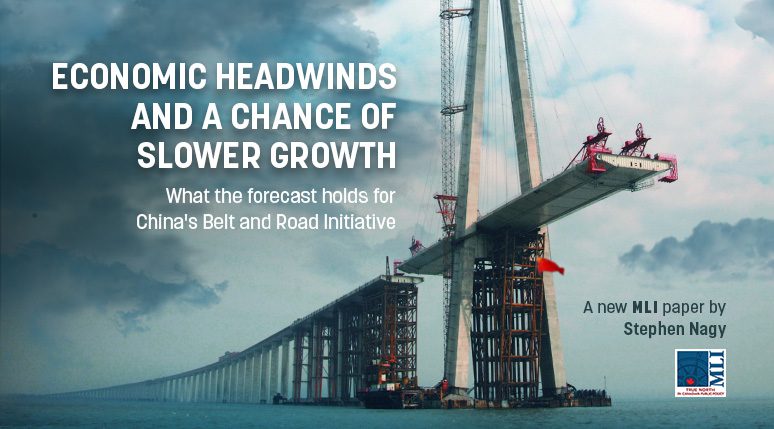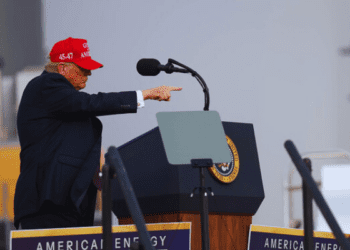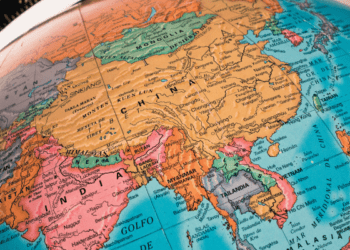 OTTAWA, ON (April 22, 2022): As countries on every continent grapple with inflation, broken supply chains and soaring energy prices, a new MLI paper indicates that even China’s juggernaut economy will face a slowdown that could threaten Beijing’s plans to become the world’s leading superpower.
OTTAWA, ON (April 22, 2022): As countries on every continent grapple with inflation, broken supply chains and soaring energy prices, a new MLI paper indicates that even China’s juggernaut economy will face a slowdown that could threaten Beijing’s plans to become the world’s leading superpower.
In “Economic Headwinds and a Chance of Slower Growth,” Senior Fellow Stephen Nagy provides an updated snapshot of China’s economic prospects as it deals with its own domestic issues while also adjusting to a changing global geopolitical landscape.
Nagy uses China’s Belt and Road Initiative (BRI) as a barometer to gauge how economic and political challenges could impact the regime’s mission to replace the United States as the world’s dominant political and military power.
Beijing argues that its BRI – the signature policy program of Chinese President Xi Jinping – is designed to help developing nations finance the building of railways, power plants, airports and other major infrastructure. Critics call it a strategic debt trap that has left numerous developing and cash-strapped countries owing vast debts that they have no hope of repaying, while allowing China to further exploit natural resources and establish military outposts around the world.
According to these critics, the BRI is a tool of economic influence over weaker partner countries that helps advance China’s crusade for global supremacy, allowing it to supplant traditional international financial institutions while creating tensions between members of western alliances.
Nagy argues that a series of converging factors, including pressures that are undermining Beijing’s ability to sustain funding levels to the trillion-dollar program, are placing constraints on the BRI and its effectiveness in helping China achieve its international agenda.
“Structural issues, geopolitical tensions, the COVID-19 pandemic, and now the Ukraine-Russian conflict will all contribute to putting downward pressure on the Chinese economy,” writes Nagy. “This will limit the resources that can be deployed to the BRI as a geoeconomic instrument to achieve China’s strategic national objectives.”
As well, the BRI is no longer the only game in town. As nations become more wary of the political strings attached to China’s economic development offerings, new international assistance programs supported by the likes of the US, Japan, Australia and India mean that countries now have more alternatives than simply agreeing to join China’s BRI.
Nagy concludes that the economic headwinds that China is battling will affect the trajectory and influence of the BRI in the years ahead.
“In the future, China will be less able to use the BRI as a tool to reshape the Indo-Pacific region into an architecture better suited to its geopolitical preferences.”
To read the full paper, click the button below.
***
Stephen R. Nagy is a Senior Associate Professor at the International Christian University in Tokyo and a Senior Fellow at the Macdonald-Laurier Institute.
For more information, media are invited to contact:
Brett Byers
Communications and Digital Media Manager
613-482-8327 x105
brett.byers@macdonaldlaurier.ca





